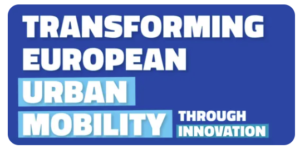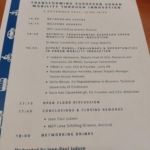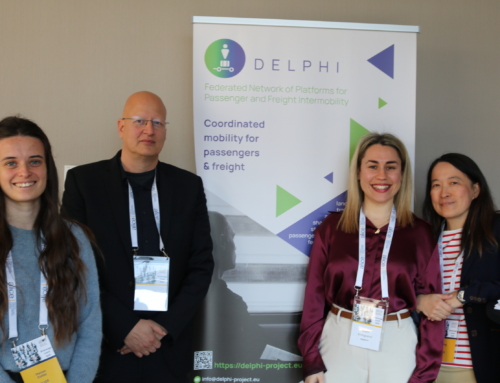
Transforming European urban mobility through innovation event took place on the 3rd of December 2024. in Brussels Belgium.
In recent years, the European Union made substantial progress in the field of sustainable transport through forward-thinking initiatives such as the Trans-European Transport Network (TEN-T) regulation, mobility data spaces and the European Declaration on Cycling.
As Europe’s largest innovation community for urban mobility, EIT Urban Mobility organised the dynamic, multi-stakeholder event ‘Transforming European urban mobility with innovation’ to explore policy challenges and opportunities in the urban mobility sector during the 2024-2029 mandate. The participants had the chance to discuss the vital role sustainable urban mobility innovation can play in achieving the EU’s CO2 reduction goals and pathways to support start-ups and SMEs who are striving to contribute to these efforts.
ALICE colleagues, Mr. Fernando Liesa and Dr. Yanying Li attended the event, which brought together policy makers, innovators and industry leaders to discuss the challenges and opportunities of urban mobility innovation. Participants explored how sustainable mobility solutions can support the EU’s CO2 reduction targets while improving the quality of life in cities.
ALICE’s Secretary General, Fernando Liesa, highlighted key priorities for the future of urban freight and logistics:
1️⃣𝗨𝗿𝗯𝗮𝗻 𝗳𝗿𝗲𝗶𝗴𝗵𝘁 𝗺𝗮𝘁𝘁𝗲𝗿𝘀: Freight is an essential component of urban mobility that requires attention and integration in sustainable mobility strategies.
2️⃣𝗙𝗿𝗼𝗺 𝗶𝗻𝗻𝗼𝘃𝗮𝘁𝗶𝗼𝗻 𝘁𝗼 𝗶𝗺𝗽𝗮𝗰𝘁: EU-funded R&I projects (such as URBANE Project, DISCO Project, DELPHI_EU project, GreenTurn Project, and others) have generated countless innovations, but we need to ensure their implementation to achieve tangible benefits for cities and citizens as well as strengthening competitiveness of European industry.
3️⃣𝗥𝗲𝗰𝗼𝗺𝗺𝗲𝗻𝗱𝗮𝘁𝗶𝗼𝗻𝘀 𝗳𝗼𝗿 𝗰𝗵𝗮𝗻𝗴𝗲: The Expert Group on Urban Mobility (EGUM) has developed clear, actionable recommendations to accelerate the shift towards sustainable urban logistics. The European Commission should adopt and implement these guidelines to foster effective change.
ALICE team shared their expertise and emphasised the importance of cross-stakeholder collaboration and larger innovation programmes to address systemic transformation, align innovation, financing, local impact and pan-European scaling-up opportunities.
Organised by EIT Urban Mobility, one of ALICE’s member organisations, the event demonstrated how innovation and partnerships are essential to achieving the EU’s climate goals and creating liveable urban spaces.
PHOTO GALLERY









